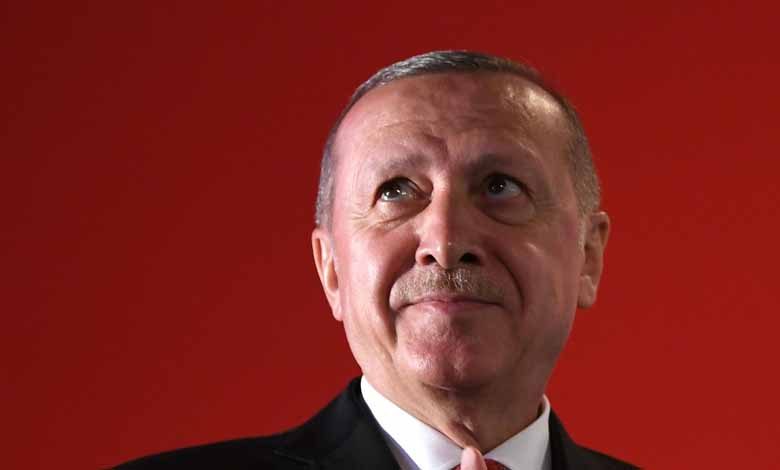Erdoğan … The Mahdawiya-Clad Politician

The candy seller in Istanbul, the son of a religious family “Riza”, becomes in 2014 the president of the Turkish Republic, a record period to reach power, since he returned to the political scene in 2001, after a forced break, the two founders of the Justice and Development Party in the same year, a man who never tends to waste time, as if everything is ready, except to become the prime minister, for legal reasons, and even here he didn’t try to waste the opportunity, borrowing “Abdullah Gul” to take office as his replacement so he could succeed in making a legal amendment through his party’s legislative victory, and this is what actually happened, less than two years later, became the head of the government in 2003.
Less than a decade later, Erdoğan, then president of the Republic, moved to power in 2014, having fought many political battles in a clear religious formula, Islamists considered themselves the only ones with the responsibility and defense of the people.
Erdoğan invented the slogan “President of the People,” because Turkey is secular by history and practice, because Islamists are the historical traditional adversary of secularism, Erdoğan also invented the slogan “New Turkey,” and because Islamists consider themselves the protectors of virtue, justice advocates, and development advocates, Erdoğan moved from the NP to the RP, and finally to the AKP.
This historic introduction, which lists the numbers of years, the significance of the stations, the meaning of slogans and the contents of the President’s controversial, unacceptable, and opposition march, was necessary. No one can deny that he presented Turkey with a developing economy, strong despite the regression and fluctuation that it is experiencing. Also, no one can deny that he gave Turkey in crises, conflicts, wars and revolutions, as an offering to an unreal glory. Turkey did not emerge as a world power, nor as a regional power.
Turkey is not a regional power for the simple reason that it has always appeared in the region’s crises, wars and conflicts as a power of world powers. Russia and America are once, just like the Islamic Republic, with two faiths, with a global military context.
I have a debate, in a positive sense, between an Islamist friend and me, about the character of Erdoğan, a president who is trying to hold the stick from the middle, at the political end, at the religious end, fueled by a high sense of leadership, authoritarianism and authoritarianism, and the religious one who is closer to the Mahdi, as it were, relative to the prospective Mahdi, at a critical and potentially explosive distance. My friend, like most Islamists, sees Erdoğan as the protector of the Sunnis and the Brotherhood, the only counterweight to Ayatollah Khamenei, the Shia protector, and the only leader who has the cost of standing up to America and its allies.
According to my Islamic friend, Erdoğan has become the only option for the Arabs to withstand the world’s will by wiping them out, destroying them and destabilizing their Qatari entities. The whole world is fighting for Arabs and Islam, but he did not try to clarify what he was saying, for the man who wanted to be a politician, they carried him over his power, he wanted to sit on the throne of governance, power and politics and they kidnapped him into the seat of the caliphate, if we give up the argument of Erdoğan’s unwillingness to throw him randomly into this battle. But I am convinced that Erdoğan is just mendacious about this, so he employs her politically, and I think he has succeeded in that.
The least of these successes is that he is doing politically what is considered religiously forbidden and finding those who interpret this as a satisfactory interpretation, not to mention the new Turkish-Egyptian rapprochement, which has cast a dark shadow on the Islamists, especially those on Turkish soil, and will inevitably find justification for it. Under the pretext that the Sultan and the Caliph are exerting political efforts, it is okay if some pay a religious price for that effort, and when they work religiously, it is okay for some to pay a political price for that. The important thing is that the man does whatever he can justify.
Erdoğan is rioting with Israel, embarrassing its leaders, fighting religiously, approaching it and establishing advanced relations with it, a political leader who refuses the religious legitimacy of Egyptian President Abdel Fattah al-Sisi and seeks to restore good relations with him politically. He was referring to a number of regional rivalries of Turkey, some of which Erdogan is trying to reduce and reform, at the expense of anything other than protecting his policy and authority.
The conflict between the political and religious inside Erdoğan’s personality is clear and explicit, a policy in favor of his religious content, but it creates antagonisms, antagonisms and international antagonism, as opposed to other practices for the benefit of the political content within his personality, who will remain fearful that his place will be shaken in the mind and conscience of the Islamists of the world who are today in a critical state, and who saw him as a last resort, after their critical, anxious and fearful sanctuaries in Europe.
Erdoğan may have been convinced that he has to make concessions at the political and religious level, both to celebrate two years from now when he is in power the centenary of the Turkish state, but on the other hand he threatens the world with a new Turkish state after 2023, something that really creates confusion, and in this other talk.












